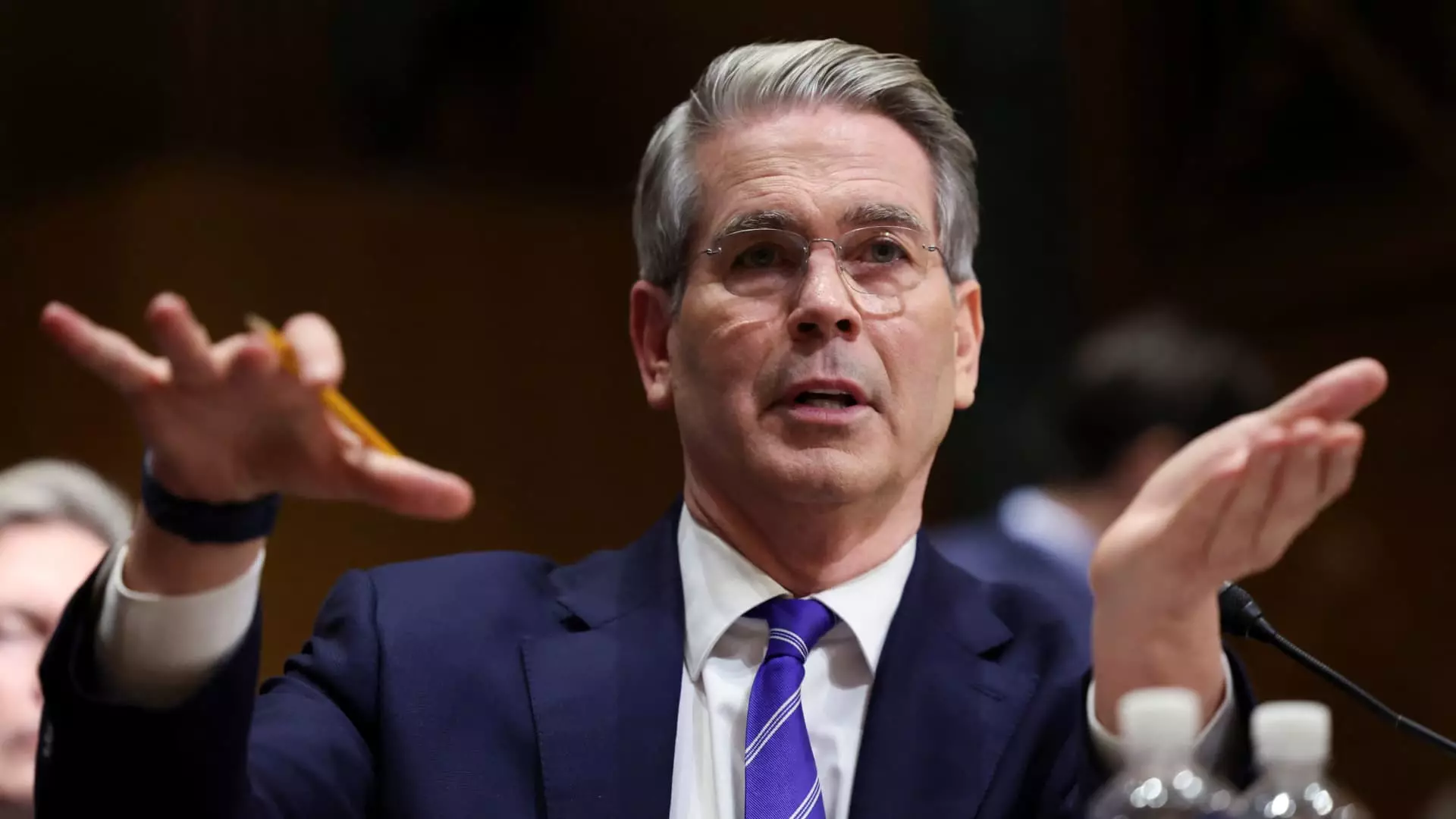The growing trade war between the United States and China signifies not just a clash of economic policies, but also a confrontation of ideologies and national ambitions. Treasury Secretary Scott Bessent, in his latest remarks, suggests that the U.S. is at an advantage, likening China’s recent tariff escalations to “playing with a pair of twos.” This metaphor is not just flippant; it encapsulates the hubris that can lead to a disastrous game of poker where the stakes are the very livelihoods of working Americans and the future of global commerce.
Bessent argues that the American economy is better positioned to absorb these retaliatory tariffs since the U.S. exports a fraction of what it imports from China. Yet, one must ask: does this viewpoint underestimate the ramifications for American entrepreneurs, families, and markets? As tariffs rise, so does uncertainty, which in economic terms translates to stagnation. The willingness to engage in tit-for-tat tariffs might appear strategically sound, but the immediate effects on consumer prices and business investment cannot be ignored.
The Role of Diplomacy in Economic Warfare
Bessent’s comments also relay an optimistic agenda regarding the potential for negotiation. He suggests that the rising anxiety around trade policies is pressuring various nations to come to the table to discuss fairer trade practices, with Japan already leading the charge. It sounds promising, but it’s essential to consider the underlying forces at play. When a nation resorts to tariffs to stimulate negotiations, it risks an escalatory backlash that hardens positions rather than fostering collaboration.
Trade should ideally be a bridge—an avenue for mutual benefit and understanding—but when economic diplomacy devolves into coercive tactics, the risks multiply. Countries that may initially perceive an opportunity in compliance could realistically foster a sense of resentment that lasts far beyond the lifespan of these tariffs. History teaches us that economic warfare can have unintended consequences that ripple far across borders and industries.
The Tariff Trappings
Although Bessent alludes to the potential for job creation and revenue through tariffs, the notion that this mechanism could simply act as a “melting ice cube” betrays a risky overconfidence in regulatory economics. The idea is predicated on the notion that with time, American companies will rush back to build manufacturing plants in the U.S., compelled by tariff-induced market necessitation. While there’s merit to the idea of reshoring manufacturing, the reality is more multifaceted.
Tariffs become burdensome over time, shifting the basic principles of supply and demand. The moment consumers realize they are paying more due to elevated tariffs, they may reduce spending, potentially slowing the economy. The administration must navigate this economic minefield judiciously, recognizing that manufacturing jobs cannot merely be conjured into existence by levying higher costs on imports. An awareness of the interconnectedness of the global market is crucial.
The Complexity Beyond Tariff Tactics
The threats of a looming 50% charge on Chinese imports hang over the markets like a dark cloud, inciting immediate panic and speculation. Moreover, the emphasis on non-tariff barriers—like currency manipulation and hidden taxes—suggests a broader engagement with the landscape of international trade that merits a sophisticated dialogue rather than bluster. Yet, it raises the question: to what extent can we adequately measure such barriers?
While Bessent’s acknowledgment of these complexities is commendable, it underscores the necessity for transparency and collaboration in addressing them. If we genuinely aspire to establish fair trade practices, we must abandon one-dimensional, combative strategies in favor of nuanced, diplomatic engagement. The notion that “everything is on the table” can become an all-consuming conversation, one that may do more harm than good if it spirals into hostility.
Ultimately, as we navigate these turbulent waters, we must aspire to marry economic objectives with humanitarian principles. The pursuit of fair trade should reinforce our standing as a moral leader on the global stage. If we can shift our focus from confrontation to cooperation, it is possible that the fallout from these tariffs could be mitigated, leading to a greater appreciation for the interdependence of global economies. In this pivotal moment in economic history, we must ensure that confrontation does not become our intrinsic reality.


Leave a Reply